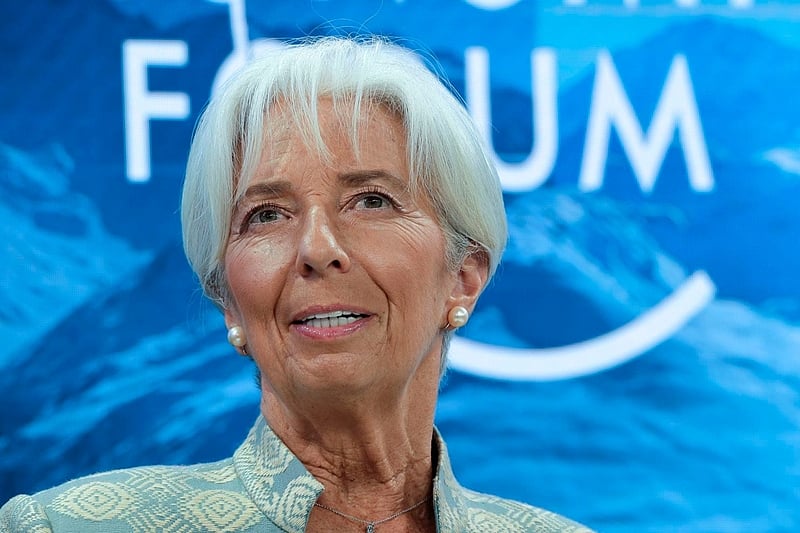Amid concerns over the world facing a significant inflation crisis, the International Monetary Fund on Friday said the one new year resolution the policymakers globally should adopt is 'policy flexibility', even as the former IMF chief and now European Central Bank President Christine Lagarde asserted inflation numbers will gradually decline in Europe.
Addressing the World Economic Forum's week-long online Davos Agenda 2022 summit on its last day, Lagarde also said there was nothing like ''The Great Resignation'' being experienced and Europe's employment participation numbers were nearly pre-pandemic levels.
However, Brazil's Minister of Economy Paulo Guedes said, ''Central banks are sleeping at the wheel -- inflation will be a real problem very soon for the Western world.'' Speaking during a session on 'global economic outlook', IMF Managing Director Kristalina Georgieva said the response to the pandemic crisis has been anything but orthodox and in a highly coordinated manner both central banks and finance authorities have prevented the world from falling into yet another great depression.
''If I were to offer policy makers a new year's resolution, it would be policy flexibility... In low-income countries, 60 per cent are in either debt distress or in danger of debt distress – more than twice as many as in 2015,'' she said.
Her predecessor at IMF and now ECB President Lagarde, however, said during the same session, ''In Europe, we are not seeing inflation spiral out of control. We assume energy prices will stabilise from the middle of 2022, bottlenecks will also stabilise in 2022 and gradually, inflation numbers will decline.'' ''When I look at the labour market, we are not experiencing anything like 'The Great Resignation', and our employment participation numbers are getting very close to the pre-pandemic level,'' she said.
Lagarde asserted that Europe was unlikely to face the kind of inflation increases that the US market has faced.
''More recently, we have learnt the lesson of humility -- the ECB, IMF, OECD and others all underestimated the recovery, the employment participation and, obviously, inflation,'' she said.
Bank of Japan Governor Kuroda Haruhiko said that his country's response to the pandemic has been relatively successful, though the pandemic has had a significant, negative impact on the Japanese economy.
''Unlike the US or Europe, we have to continue extremely accommodative, easy monetary policy for the time being. We expect the inflation rate in 2022 and 2023 to be around 1 per cent still,'' he said.
Brazilian minister Guedes said more than 3 million new jobs were created in 2021 and the government has assisted 68 million Brazilians with direct income transfers.
Indonesia's Minister of Finance Sri Mulyani Indrawati said, ''We see a strong recovery in the Indonesian economy in 2022, and to build on this we are expecting more than 1 per cent of additional GDP growth from a series of recent reforms.'' ''Indonesia is the largest economy in the ASEAN region, but it is vulnerable to a dependence on commodities -- the emphasis now is on value-added activities,'' she said.
During the five-day Davos Agenda summit, which began on January 17, around 2,000 participants engaged in 31 sessions focused on the COVID-19 recovery, climate innovation, the energy transition, environmental, social and governance (ESG) metrics and the global economic outlook.
The world leaders who addressed the event included Indian Prime Minister Narendra Modi, Chinese President Xi Jinping, UN Secretary-General Antonio Guterres, Isaraeli Prime Minister Naftali Bennett, Japanese Prime Minister Kishida Fumio, German Chancellor Olaf Scholz, Indonesian President Joko Widodo, European Commission President Ursula von der Leyen, WTO Director-General Ngozi Okonzo-Iweala and Australian Prime Minister Scott Morrison.
The WEF was originally scheduled to hold its 2022 annual meeting in Davos on these dates, January 17-21, but it had to be deferred due to the outbreak of the Omicron variant of the novel coronavirus. The Forum has now rescheduled its 2022 Davos annual meeting to May 22-26.
(With PTI inputs)






